Pentiment (PC Game Pass) Review
A Grounded Whodunnit Story with Human Connection
The word pentiment is a variation of pentimento and is defined by Webster as “a reappearance in a painting of an original drawn or painted element which was eventually painted over by the artist.” I take that, in a deeper sense, as relating to something the artist tried to cover up but which keeps recurring. I waited to look up this definition until after completing my time with Pentiment, the latest narrative adventure from Obsidian Entertainment, and now the story has an even deeper meaning to me. This point-and-click suspense title surprised me throughout my roughly 12 hours with it. Though at times I felt it to be a bit verbose and slow, Pentiment walked me through the life of 16th-century Bavaria in a way that held my attention and kept me guessing until the end.
Andreas Maler serves as the protagonist in Pentiment’s story. Andreas is an artist visiting the Bavarian Alps village of Tassing. Here, Maler is on a form of sabbatical, taking time to perfect his craft within a Christian abbey. As he befriends the townsfolk, Andreas slowly becomes involved in a conspiracy and murder mystery that will haunt him for a good portion of his life. The game also pits Andreas in debates concerning the rights of women, religious freedoms, and other controversial topics of the 1500s. Players use these discussions to gather clues and evidence to potentially narrow down suspects and learn more about the town and its origins.
Pentiment contains a large town of people to interact with.
One of the first things that stand out about Pentiment is its art style. I felt as if I was watching a story unfold directly from a medieval-era book. The game plays in a 2D fashion, but each of the areas has quite a bit of depth in its background, even if that artwork is static. The coloring of the characters and world are vibrant, despite looking faded, almost as if the scenes are unfolding directly off the page. Players have plenty to explore, from the town buildings to the various areas of the monastery. I admired this about the game. The setting never truly changed, yet I still had plenty of new experiences to find from my objectives and interactions with people.
In a game that has no voice acting, Pentiment created a unique way to distinguish the personalities of different characters. Every bit of dialogue is written out on screen, but it is the fonts used that tell something about the person speaking it. For instance, most of the monks in the abbey speak in a Gothic font, as one would find in aged Bibles. Many of the townsfolk have a font that seems less refined, given their peasant status. For the few that practice print blocking or book printing, their dialogue comes out in print blocks instead of written dialogue. The dialogue is quite creative and I found that it aided me, discovering fragments of that person’s history and helping me to remember things I’ve learned about them.
Further given space because of the lack of voice acting, the ambient sounds and music take center stage in Pentiment. Many of the locations had a form of hustle and busyness to them. The town commons came alive with the bleats of sheep and excited calls of pigs. A waterfall area brought peaceful river sounds and bird chimes. Even the monastery, an area usually silent with meditation and study, held echoing secrets and solitude. Several times in the game, certain NPCs would sing in what seems to be fully recorded studio songs in old German and Latin, adding to the ambiance and realism of the setting’s time period. The different locales were intriguing to look around in, even if there was not much to find besides more citizens to speak to.
Players have a certain number of hours in the day to conduct their investigations.
Gameplay in Pentiment is all about your interactions with the citizens of the village and monastery. Players have almost full access to anywhere, with the help of a simple map labeled with objective markers. Every section of the game takes place within the parameters of daytime and nighttime, so certain actions may not take but a few minutes while others will take more time. This is imperative due to the deadline feature of the murder mysteries. Players only get a certain number of in-game hours or days to compile evidence and must decide which actions will potentially prove more beneficial in making their case. Luckily, the NPCs giving these tasks speak clearly about how a certain event will take a long time, so players can decide to visit other areas first before committing to an action.
Everything in Pentiment revolves around dialogue and exploration. Players must choose whom to speak to and how they approach conversations. Sometimes Andreas must attempt to convince someone to help him or give him a secret bit of information, so dialogue checks are common and dependent on what he said previously. The game informs the player when an action or statement will be remembered by an NPC later, and sometimes that one event can mean the difference between a passed or failed dialogue check. Similar to dialogue systems I’ve experienced in other games, I sometimes felt like the course I followed in a conversation led somewhere I did not intend, almost as if the NPCs reacted in a way I would not expect normal people to have done. Needless to say, I did not seem to make everyone in this game happy.
Players can choose backstory options catering to how they handle conversations.
There are no RPG-style stats in this game, but Pentiment finds a way around that. In a sort of D&D-type backstory building, at certain times the player can choose between a variety of traits and histories for Andreas. These choices give the character various types of knowledge that are useful in investigations. For instance, thanks to a choice I made in a previous conversation about having studied law in college, I was able to have an easier time resolving a side quest that involved legal land disputes. Also, having stated that in the past I spent time in Italy, I was able to carry on Italian conversations with certain patrons. It’s a fun little system that does not require XP grinding to establish what I want Andreas to be able to do.
Up until now, I have not had much criticism to speak of concerning Pentiment, and that’s intentional. This game doesn’t try to throw a bunch of mechanics at players, and the few things it does contain are executed well. My only real critique is on the individual conversations between Andreas and the townsfolk. I felt as if some of these dialogue sequences were unnecessarily long, which was most likely a result of having to read all the dialogue instead of hearing it. This game is rich in its facts on the history and happenings of the time, but at times I found my eyes glazing over when characters discussed their interpretations of things like Martin Luther’s 95 Theses and Biblical points of view. One saving grace in this is a quick glossary system in the dialogue itself. Every character, major location, and item of interest can easily be clicked and referenced should I forget who this person is and what city the citizens are referring to. It was a helpful system to keep me from losing all focus and interest in what was happening.
Pentiment offered a new take on classic RPG point-and-click games that I found unexpected and refreshing. The story kept me intrigued much as a suspenseful TV show would. I learned quite a bit about the history of the early 1500s, not just historical facts but also the daily living challenges of its citizens. This game gets storytelling right in a variety of ways, and I can see some potential replayability for alternate conversation outcomes and other side quest fulfillments. Though this is not a game I’d recommend binging due to its lengthy dialogue sequences, Pentiment is still a title that can pull you in for hours before you realize what has happened.
SCORES
GAMEPLAY - 10/10
VISUALS - 10/10
SOUND - 9/10
CONTROLS - 9/10
REPLAY VALUE - 7/10
OVERALL - 9/10
Pentiment is available on PC platforms and on Game Pass. All screenshots were taken natively by the reviewer.


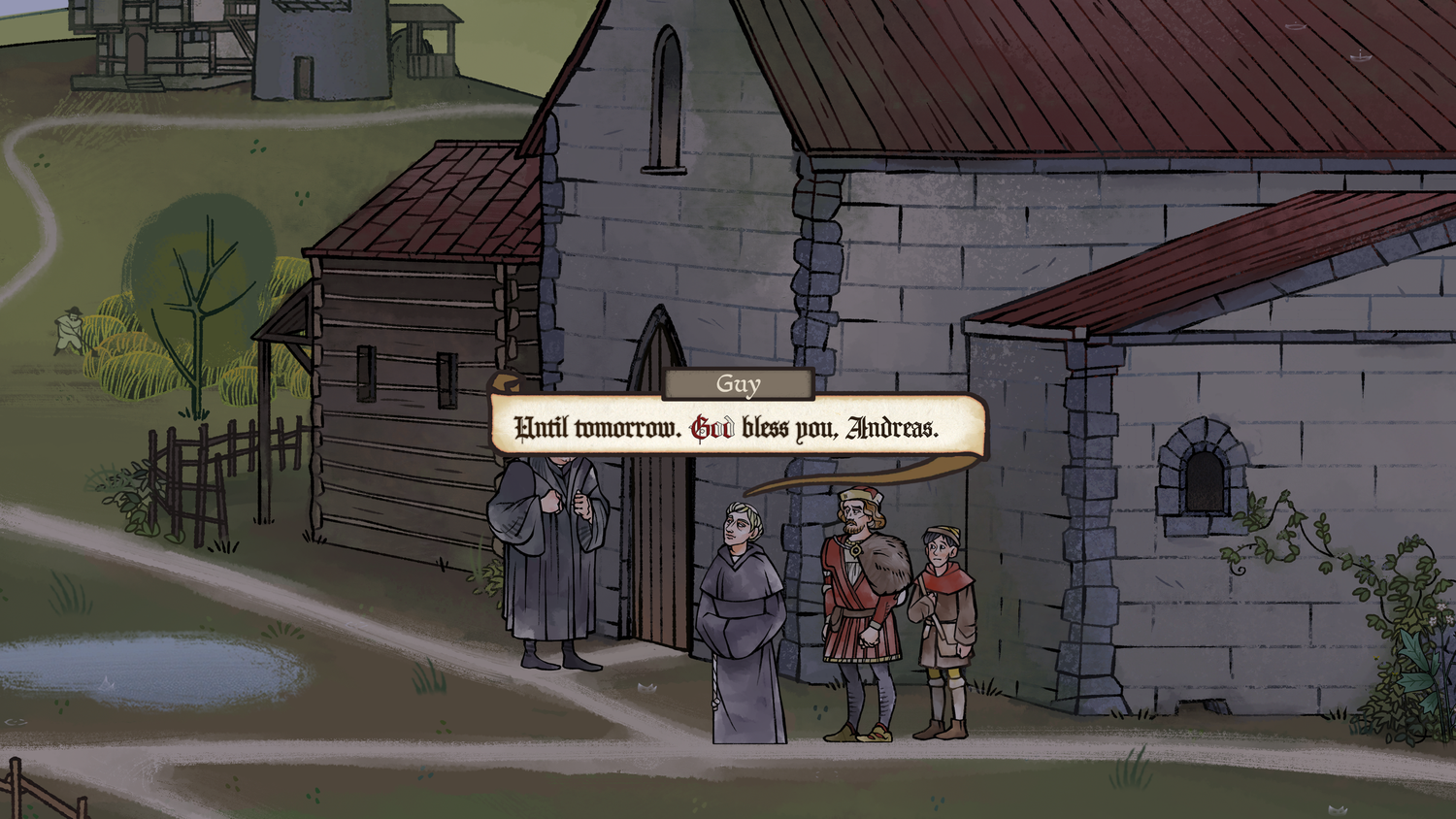


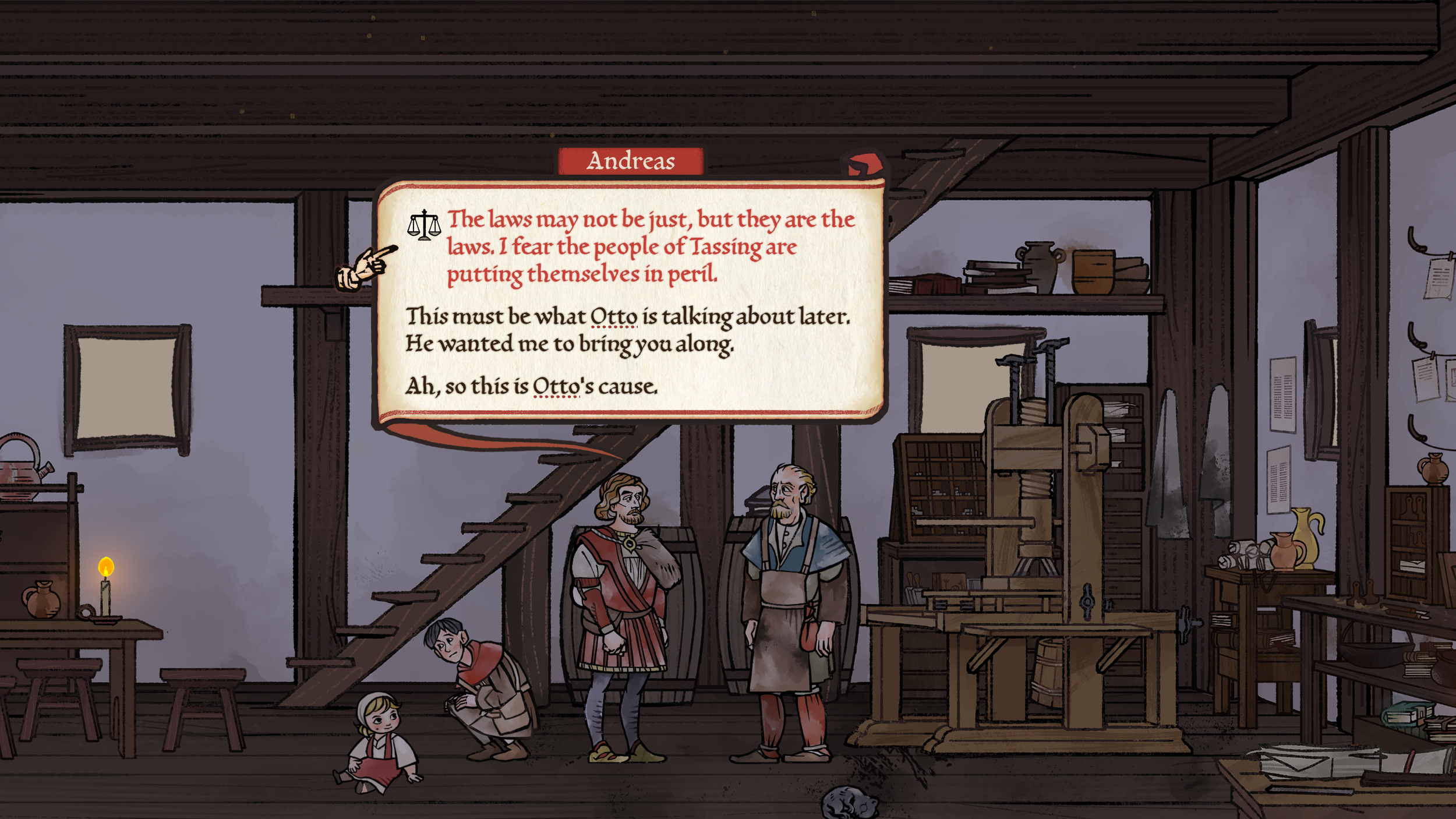
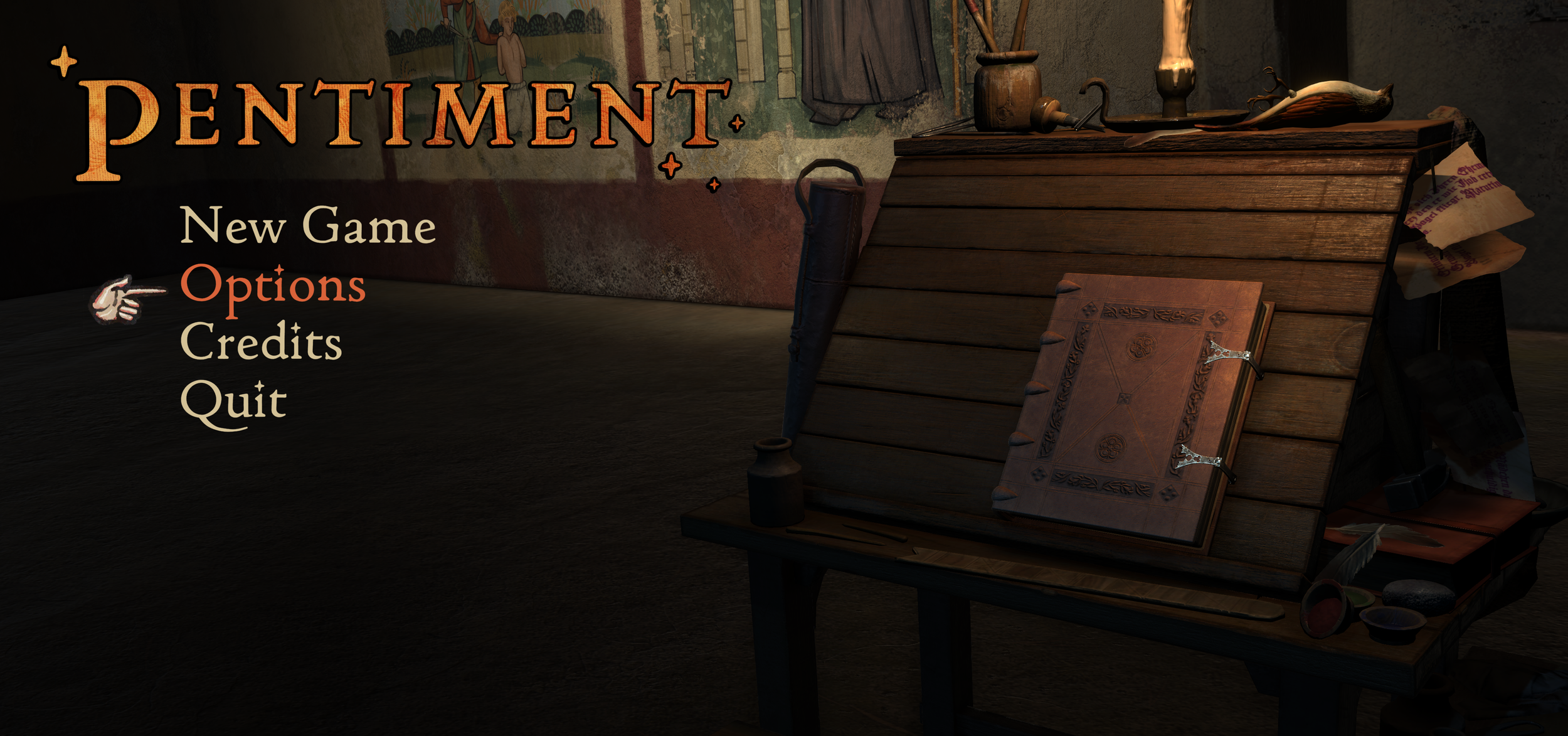
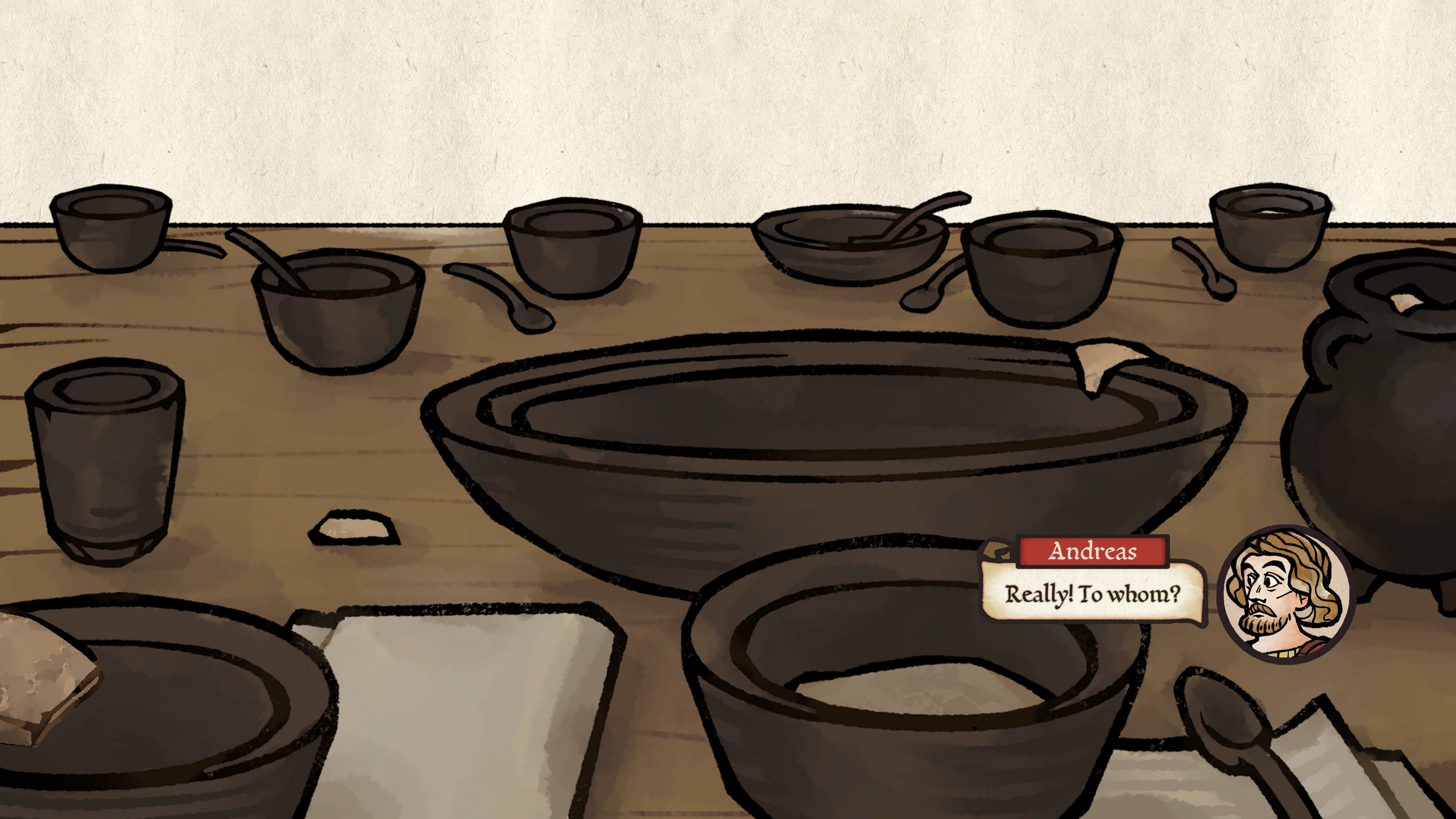

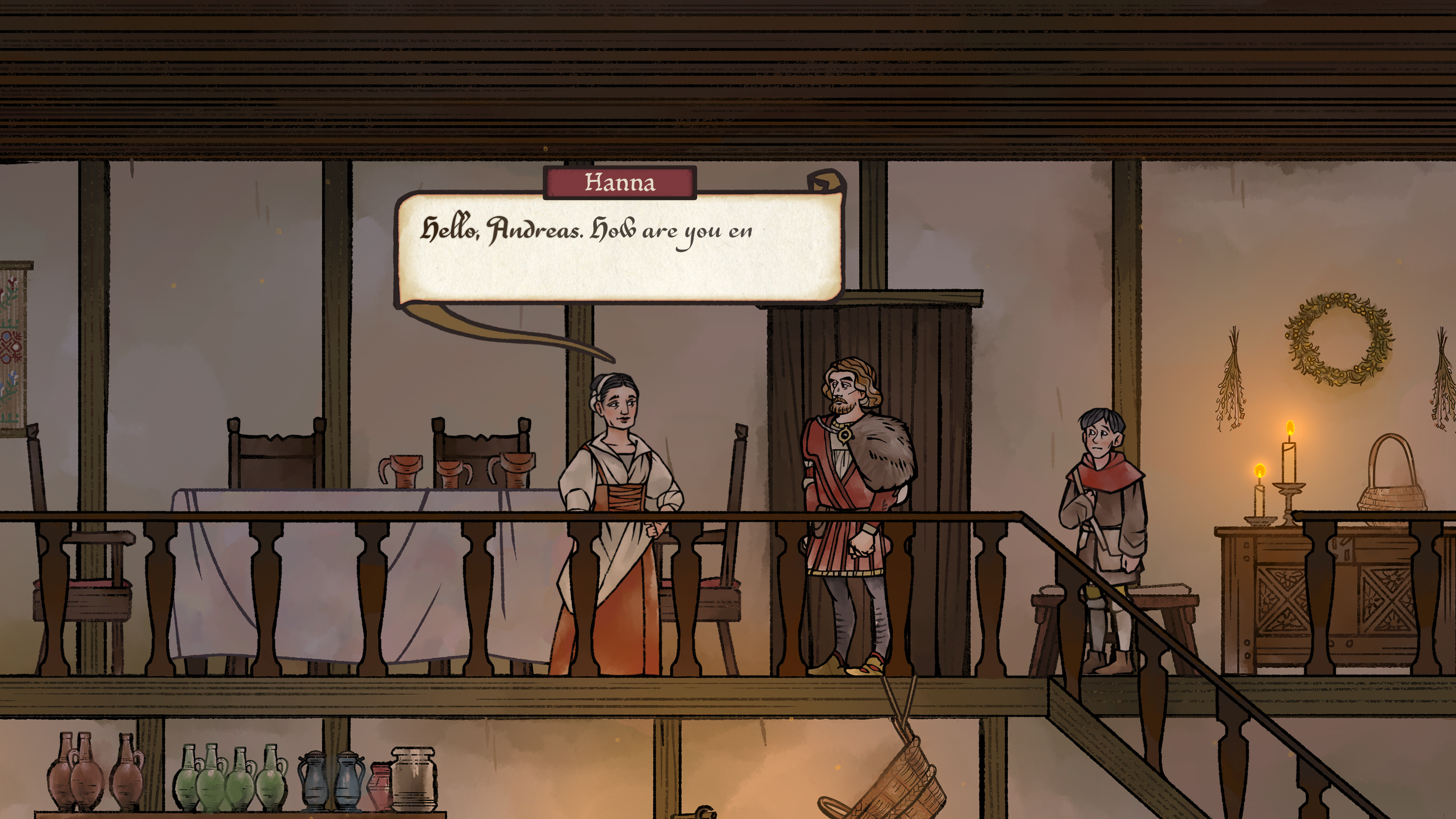

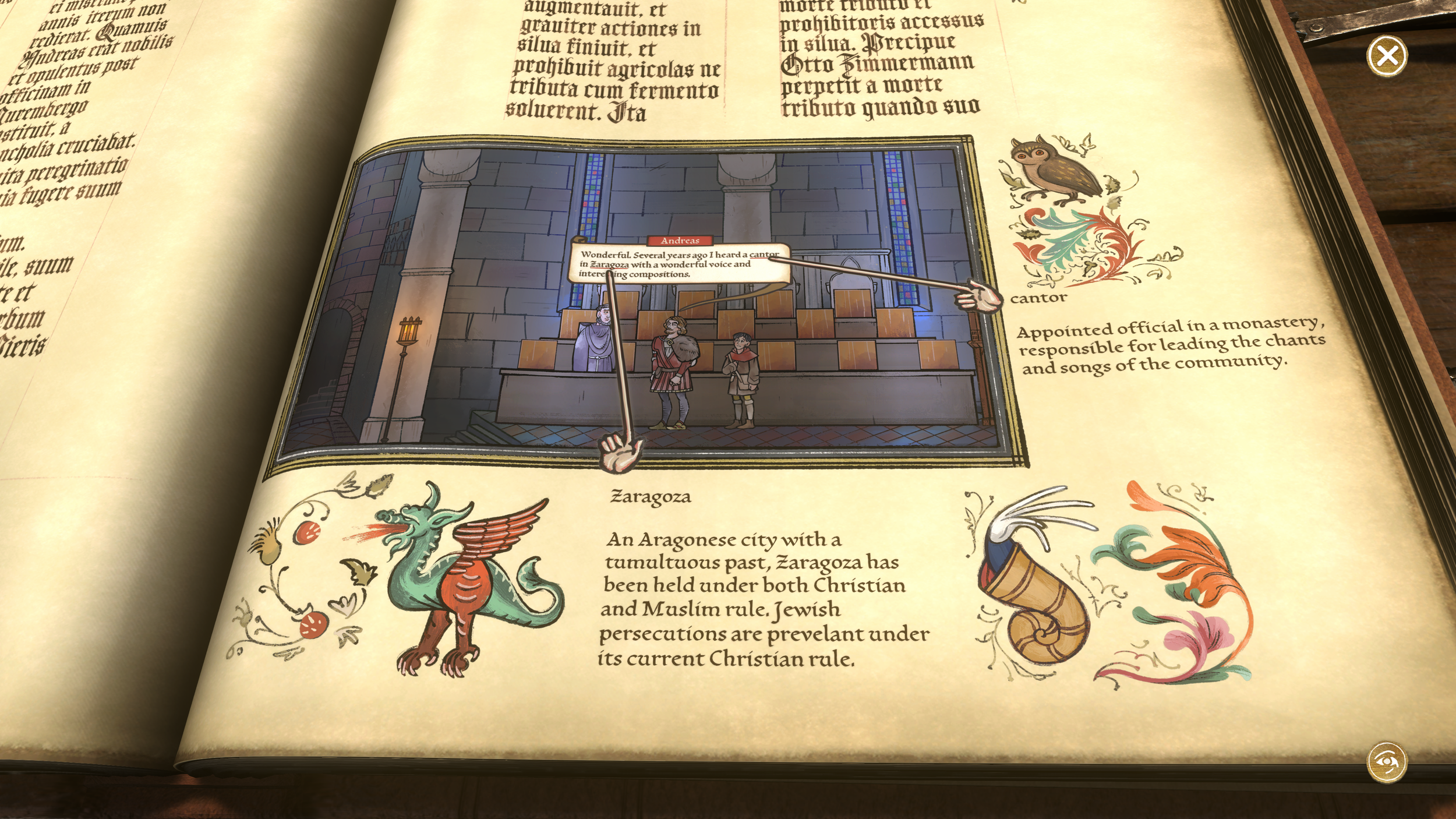
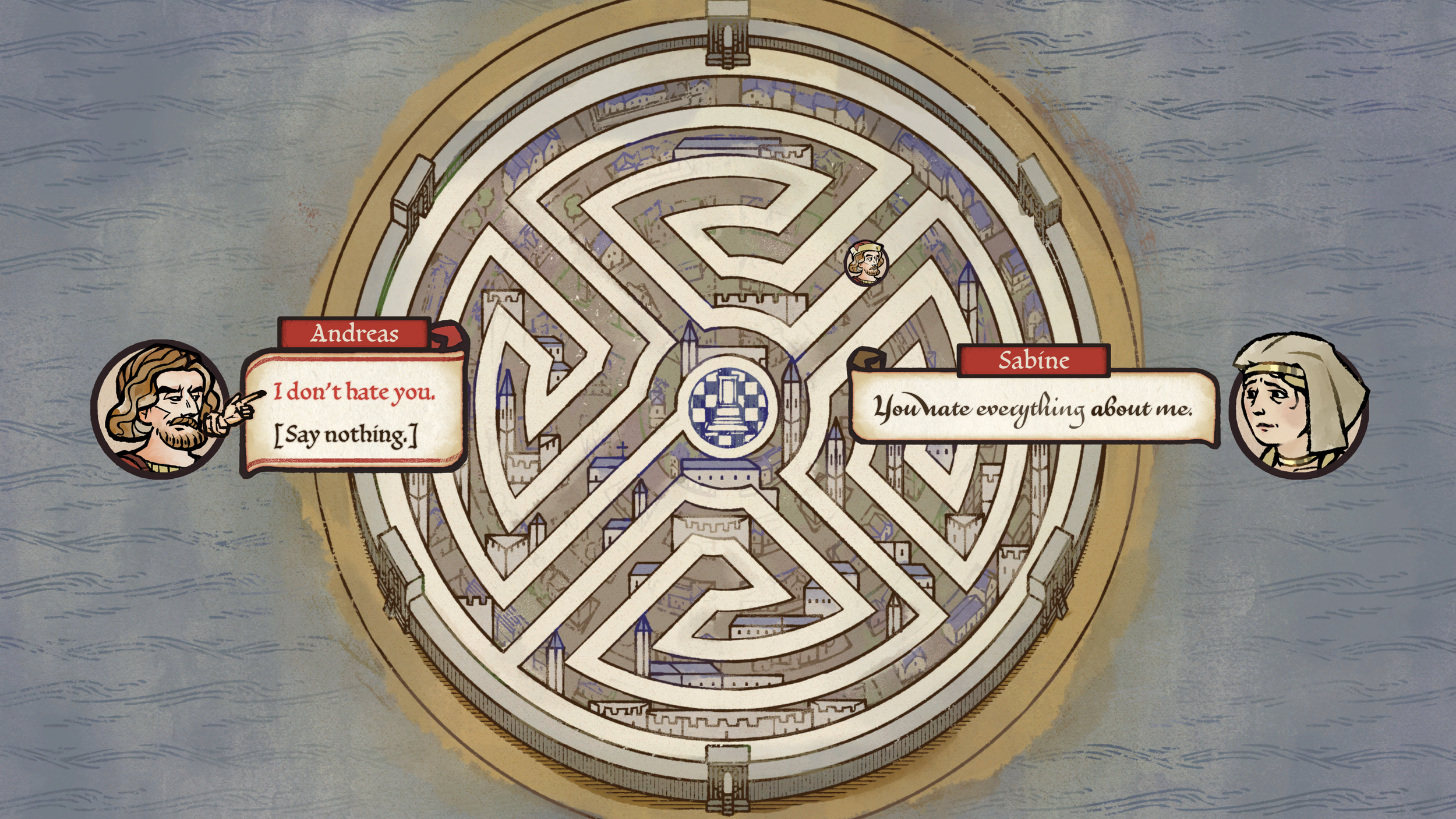
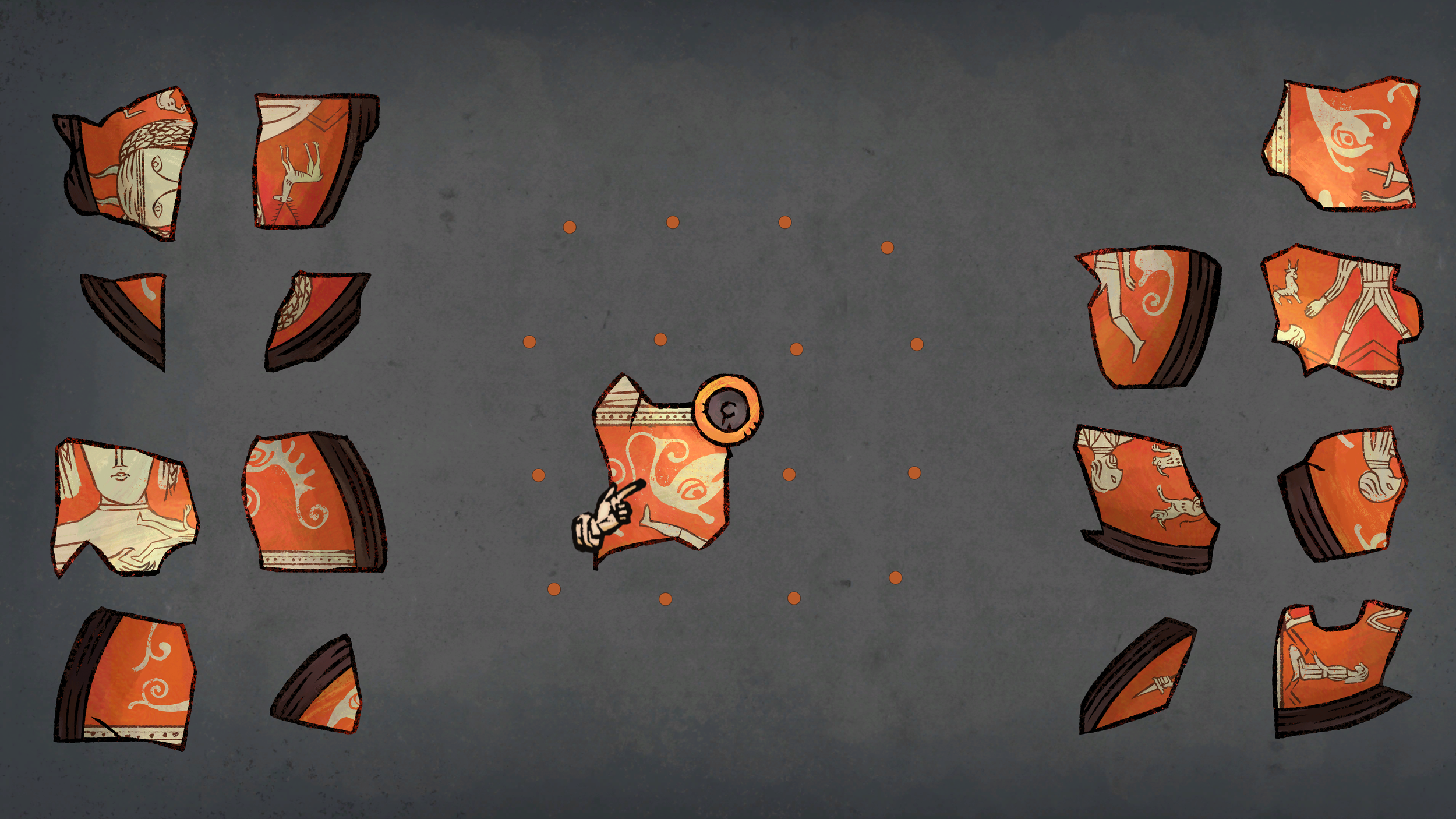

On a path that will ultimately result in his own destruction, James Savage takes on his vampiric ex-girlfriend Draculae in El Paso Elsewhere, a moody neo-noir action shooter from Strange Scaffold.